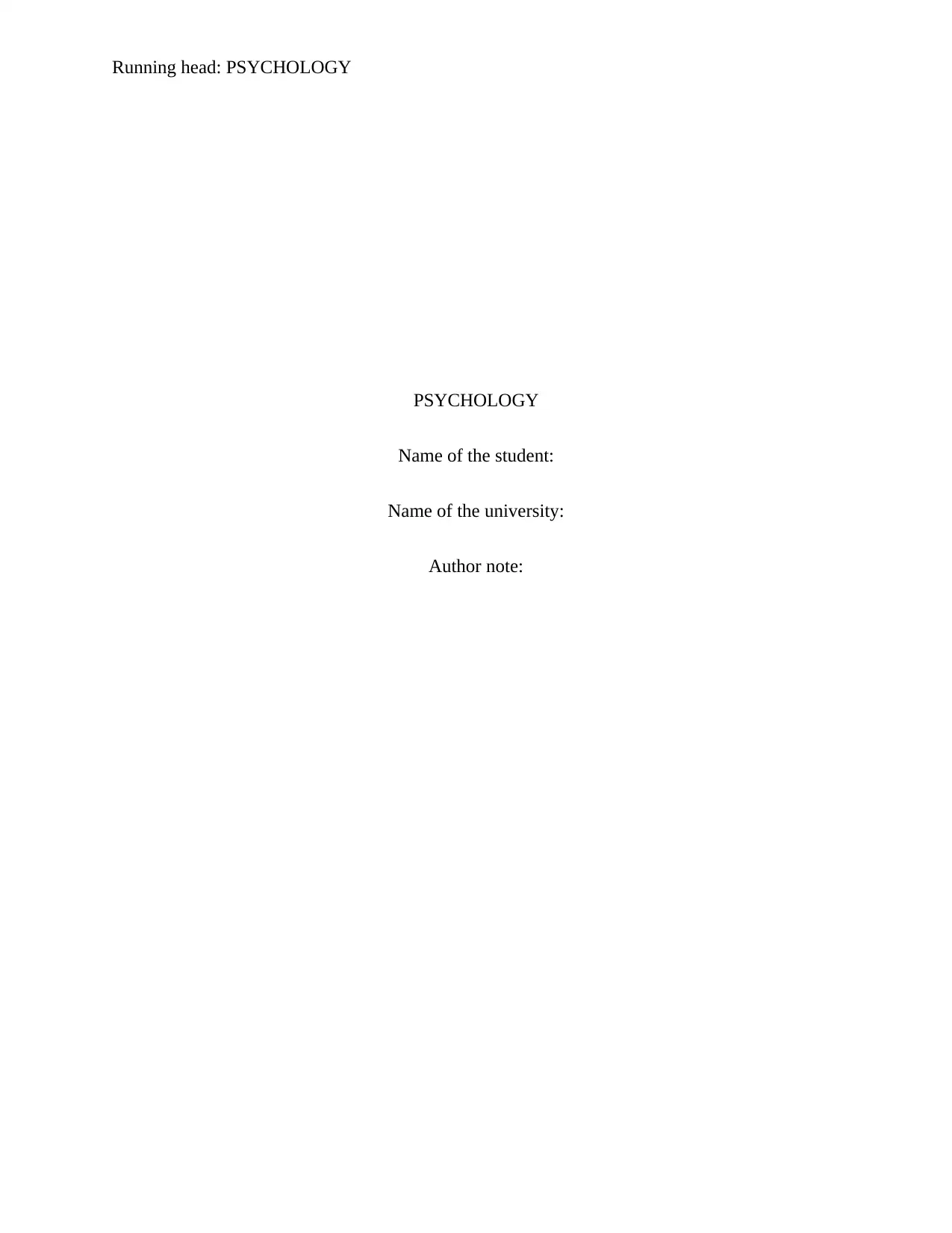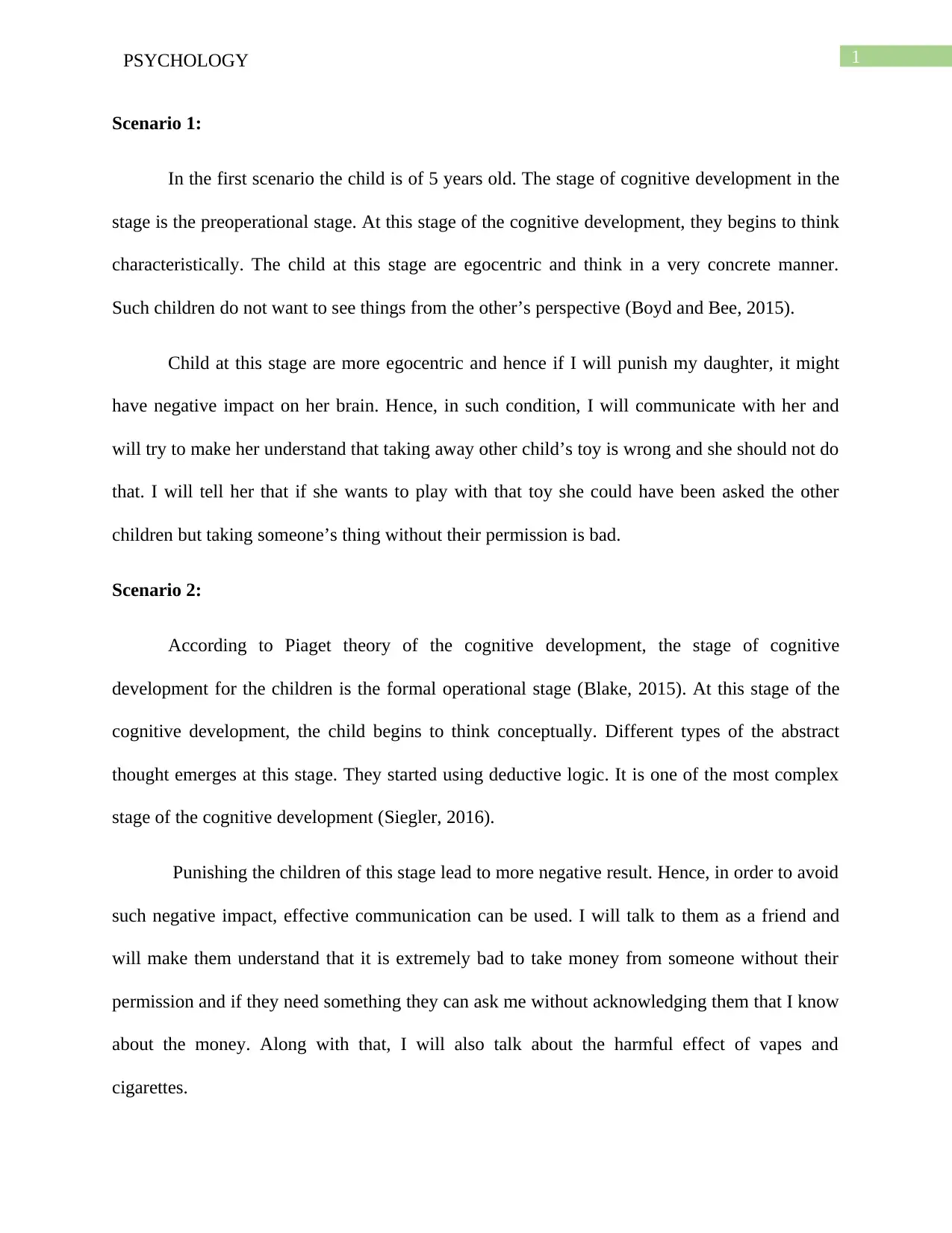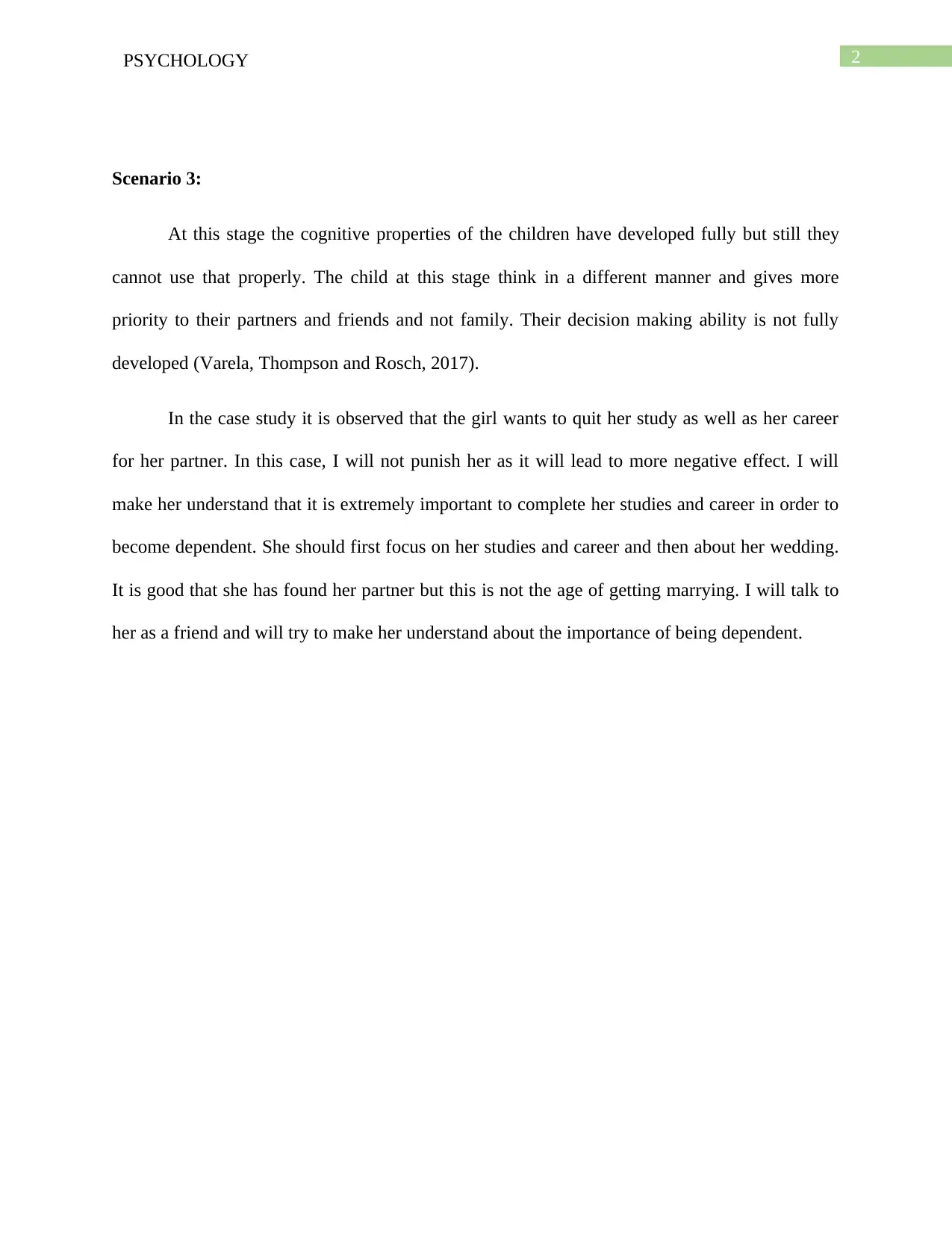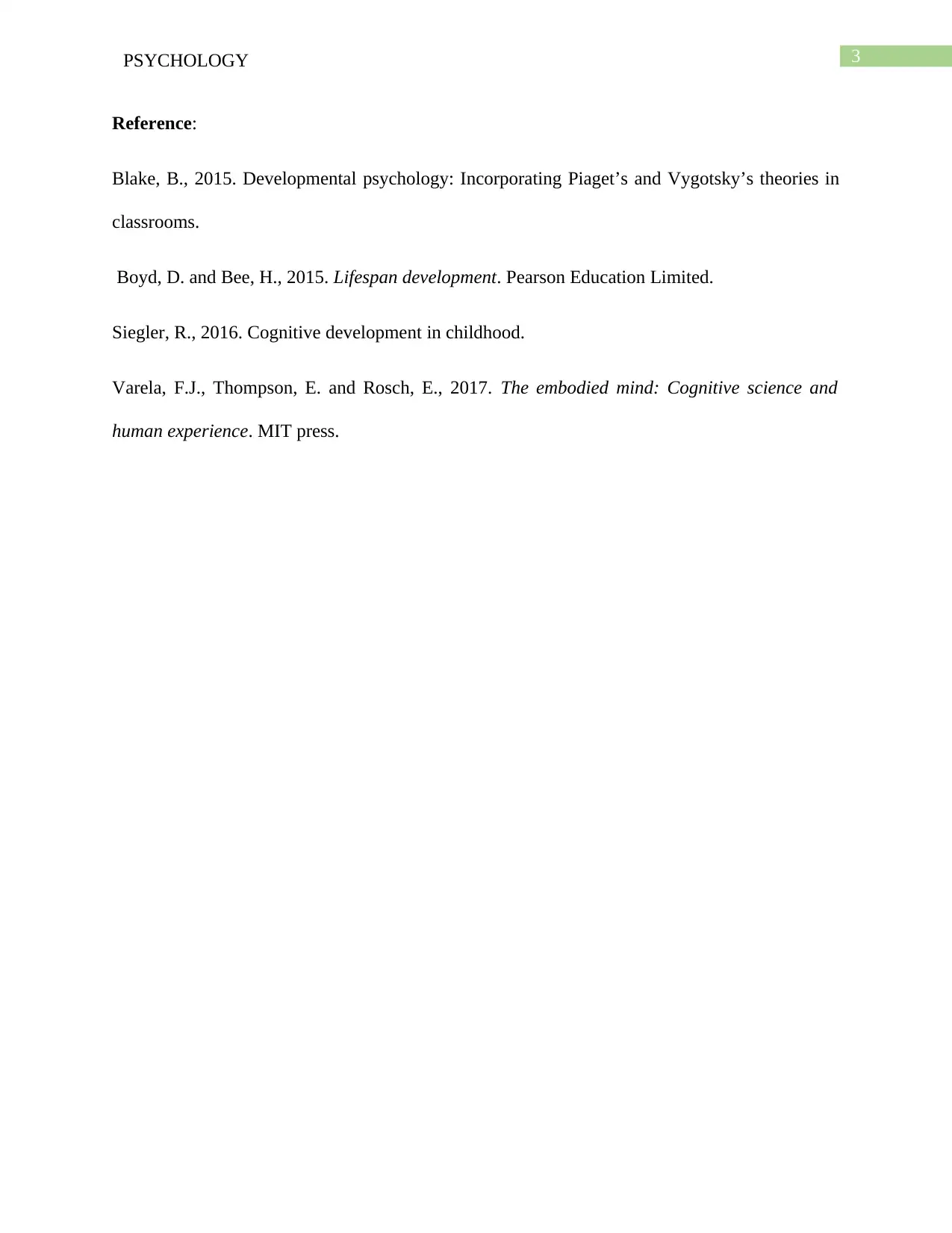Cognitive Development and Scenarios: Psychology Assignment
VerifiedAdded on 2022/11/23
|4
|628
|492
Homework Assignment
AI Summary
This psychology assignment explores cognitive development through three different scenarios. The first scenario focuses on a 5-year-old child in the preoperational stage, where the student analyzes how to address the child's behavior of taking a toy from another child, emphasizing communication and understanding. The second scenario involves a child in the formal operational stage, prompting a discussion on how to handle a situation where the child takes money without permission, and the importance of open communication and addressing the dangers of vaping and smoking. The final scenario examines an adolescent's decision to quit studies and career for a partner, highlighting the need to guide the adolescent towards making informed decisions about their future and the importance of independence, avoiding punishment and instead fostering a supportive, communicative approach based on psychological principles and theories of child development, including Piaget's stages of cognitive development.
1 out of 4










![[object Object]](/_next/static/media/star-bottom.7253800d.svg)